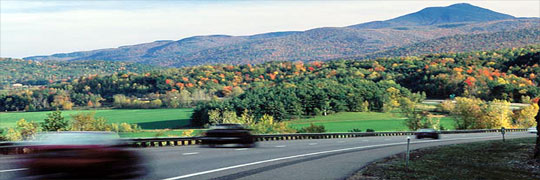 The past 6 months have been a rollercoaster ride for biofuels. They have been criticized as an environmentally dangerous alternative, and praised as a partial way out of our dependence on foreign oil. Of little mention in this criticism, however, is where these biofuels come from and which of these fuels we should be wary of. There could be an argument against the large-scale production of ethanol from food crops, but how about biodiesel from locally grown canola. Vermont farmers are experimenting growing canola, a crop that could not only be used to produce biodiesel at $2.34 a gallon, but could also help clean up Lake Champlain and other waterways. By pressing the canola seeds the fuel is created and the waste product can be fed to cows, thus the phosphorus from imported dairy feed that pollutes Vermont's lakes, rivers, and streams is cut out. Currently seed presses to create the biodiesel are few and far between, but this could change if farmers decide growing this crop is practical. [Source: Burlington Free Press]
The past 6 months have been a rollercoaster ride for biofuels. They have been criticized as an environmentally dangerous alternative, and praised as a partial way out of our dependence on foreign oil. Of little mention in this criticism, however, is where these biofuels come from and which of these fuels we should be wary of. There could be an argument against the large-scale production of ethanol from food crops, but how about biodiesel from locally grown canola. Vermont farmers are experimenting growing canola, a crop that could not only be used to produce biodiesel at $2.34 a gallon, but could also help clean up Lake Champlain and other waterways. By pressing the canola seeds the fuel is created and the waste product can be fed to cows, thus the phosphorus from imported dairy feed that pollutes Vermont's lakes, rivers, and streams is cut out. Currently seed presses to create the biodiesel are few and far between, but this could change if farmers decide growing this crop is practical. [Source: Burlington Free Press]
Locally Grown Fuels
 The past 6 months have been a rollercoaster ride for biofuels. They have been criticized as an environmentally dangerous alternative, and praised as a partial way out of our dependence on foreign oil. Of little mention in this criticism, however, is where these biofuels come from and which of these fuels we should be wary of. There could be an argument against the large-scale production of ethanol from food crops, but how about biodiesel from locally grown canola. Vermont farmers are experimenting growing canola, a crop that could not only be used to produce biodiesel at $2.34 a gallon, but could also help clean up Lake Champlain and other waterways. By pressing the canola seeds the fuel is created and the waste product can be fed to cows, thus the phosphorus from imported dairy feed that pollutes Vermont's lakes, rivers, and streams is cut out. Currently seed presses to create the biodiesel are few and far between, but this could change if farmers decide growing this crop is practical. [Source: Burlington Free Press]
The past 6 months have been a rollercoaster ride for biofuels. They have been criticized as an environmentally dangerous alternative, and praised as a partial way out of our dependence on foreign oil. Of little mention in this criticism, however, is where these biofuels come from and which of these fuels we should be wary of. There could be an argument against the large-scale production of ethanol from food crops, but how about biodiesel from locally grown canola. Vermont farmers are experimenting growing canola, a crop that could not only be used to produce biodiesel at $2.34 a gallon, but could also help clean up Lake Champlain and other waterways. By pressing the canola seeds the fuel is created and the waste product can be fed to cows, thus the phosphorus from imported dairy feed that pollutes Vermont's lakes, rivers, and streams is cut out. Currently seed presses to create the biodiesel are few and far between, but this could change if farmers decide growing this crop is practical. [Source: Burlington Free Press]
Subscribe to:
Post Comments (Atom)

No comments:
Post a Comment